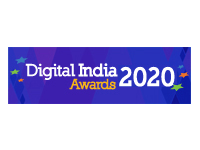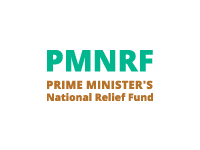Modern Technologies for Information Handling
A five days National Training Course on 'Modern Technologies for Information Handling' was held at the All India Institute of Medical Sciences, New Delhi during February 15-19, 1999. Dr. R.P. Kumar, Chief Librarian of the Institute was the course Coordinator. About Seventy participants from across the country and Nepal, consisting of Librarians, Information Science Specialists, Documentalists, R&D Scientists, Teachers in Library Science and Health Scientists attented the training programme. The main focus of the training was on the theortical and practical aspects of the automation of the libraries, Online searching, CDROM and CD Networking, Barcode Technology, Multimedia, Digital libraries, Electronic Publishing and Internet etc. Prof. M.C. Maheshwari, the Dean of the Institute inaugurated the training programme. Prof. Shabath Husian, Head, Deptt. of Library & Information Science, Aligarh Muslim University delivered the keynote address. The trainees could able to learn various information technologies for efficient and quick information and library related services during the training.
Dr. M.G. Muthukumaraswamy, Vice Chancellor, Annamalai University delivered the Valedictory address. In his address, he emphasised the need of organising more such training course by the Institute. Prof. S.N.P. Sinha, Vice Chancellor, Patna University distributed the certificates to the trainees. Presiding over the function, Prof. P.K. Dave, the Director of the Institute expressed his happiness at the successful conclusion of the training programme. He hoped that the participants will derive maximum benefits and introduce various information technologies in their respective libraries and information centres. Dr. R.P. Kumar, the training Coordinator gave a brief resume about the course and proposed the vote of thanks.
Recent Trends in Bioinformatics and Internet Resources
A two days National Seminar on 'Recent trends in Bioinformatics and Internet Resources' was organized by Prof. P.P. Mathur, Officer in-charge, Bioinformatics Centre, Pondicherry University, Pondicherry during March 8-9, 1999. It was sponsored by the Department of Biotechnology, Govt. of India, New Delhi. Around 40 participants from all over the country attended the seminar. Inaugurating the national seminar, Prof. V.T. Patil, Vice-chancellor of the University appreciated the activities of the Bioinformatics Centre and stressed the need of Bioinformatics and Internet for the scientists working in the area of Life Sciences and biotechnology. He also pointed out the importance of Internet facilitates for scientiests is getting various valuable information, articles, etc.
Prof. P.P. Mathur welcomed the participants and the resource persons. He also highlighted the various activities of the centre and how the centre is catering to the needs of various scientists in and around Pondicherry. Dr. A. Ramachandra Reddy of the School of Life Sciences proposed the vote of thanks.
The various topics covered during the seminar includes Molecular Sequence Alignment, Sequence Analysis (DNASIS & GeneScan), Sequence and structure databases, Molecular Modelling of drug reception interactions, etc. The topics like Web based information access, various public databases, search engines and a whole lot of important web sites for the molecular biologists were covered as a part of internet resources.
Linking of Libraries / Inforamtion Centres of Lucknow through a computer network
A seminar on Application of Information Technology in Libraries / Information Centres and Networking of Libraries of Lucknow organised by U.P. Library Association on November 15,1998 at UPLA Auditorium at Narahi. More than sixty library and information science professional from all the important libraries/ Information centres of the Lucknow participated in the seminar.
In his inaugural address, Prof. Kaula termed the present age as the age of information technology and said that information technology has not only revolutionized libraries and information centres but also left its impact on every sphere of human activity. Prof. Kaula traced the development of various library networks such as INDONET, VIDYAGIRI, INFLIBNET, CALIBNET, BOMNET, HYDERNET, DELNET etc. in the country and emphasied that creation of library networks has become a necessity.
Mr. R.K. Srivastava, Secretary, U.P. Library Association, Lucknow apprised the participants about the need for creating the proposed network of libraries/Information centres namely LUCKLIBNET on the lines of those already functional in Delhi, Calcutta, Madras, Bombay, Pune, Hyderabad and Ahmedabad. Dr. Roshan Raina, Vice President, U.P. Library Association welcomed the Guests and stressed upon the need for pooling the rich resources available in libraries/Information centres of Lucknow through a computer network. Mr. Yogendra Mishra, Jt. Secretary, U.P. Library Association proposed a vote of thanks.
Mr. Bipin Kumar, Librarian, British Library, Lucknow chaired valedictory session and summed up the day’s proceedings. Dr.(Mrs.) Rochna Srivastava, Rapporteur General presented draft resolutions which were adopted by the participants after minor amendments. It was decided that a sub-committee should be formed by the U.P. Library Association, Lucknow to monitor the implementation of recommendations of the seminar. The Seminar ended with a vote of thanks by Mr.R.K.Srivastava,Secretary of the Association.
Workshop on Automation and Networking of University Libraries under INFLIBNET Programme
The 'Fifth Workshop on Automation and Networking of University Libraries under INFLIBNET Programme' was held during January 4-10, 1999 at the INFLIBNET Centre, Ahmedabad. The main objectives of the workshop were:
n To develop and promote mutual understanding between INFLIBNET Centre and the participating libraries.
n To discuss various issues, approach to be adopted and responsibilities to be shouldered by both, the Centre and Libraries, in smooth implementation of the programme.
n To acquint with the activities and services of the INFLIBNET.
n To provide state-of-art technologies involved in the implementation.
n To discuss, how to manage a change in the libraries in the context Information Technology.
The workshop was inaugurated by Shri Pramod Kumar, Director of INFLIBNET Centre and in his inaugural address he highlighted the importance of workshop and requested the librarians to come forward and enthusiastically participate in the implementation of INFLIBNET. Shri S.M.Salgar, a senior person in the centre gave the details about the programme and its purposes. This workshop was divided into the following two divisions and topics covered under both the divisions were as follows:
PART A: Lectures / Presentations
INFLIBNET Programme: Activities, services and future plans.
Managing Change in University Libraries in the context of Information Technology.
Management of Automation & Networking in a university library with reference to INFLIBNET programme.
Managing an Automated Library with reference to library staff and users.
Bibliographic Formats & Standards with reference to INFLIBNET.
Resource sharing among university libraries : Potential areas and issues with reference to INFLIBNET programme.
Database creation activities at INFLIBNET.
Networking of university libraries using VSAT technology.
Computerisation of university libraries: INFLIBNET support.
LAN for University Library & Campus.
Retrospective conversion of university library catalogues: Strategies, methods and issues.
Essential skills for handling Automation & Networking in university libraries.
Internet and university libraries: Potential tool for access to information.
CD-ROM technology in the university libraries.
PART B: Practical Demonstration and Handson
Integrated Library Management Software.
Search Engines.
Union Databases.
CD-ROM Databases.
Internet Searching.
Each participant highlighted the activities and services of their respective libraries and the expectations from the INFLIBNET during the workshop. The emphasis was on practical aspects and problem solving through the active interaction between the INFLIBNET Centre staff, invited experts and the participants. During this workshop, a number of decisions have been taken with the mutual consent to be effectively put through the programme. It is expected that by middle of this year, all these 18 universities funded would begin their automation activities.





















